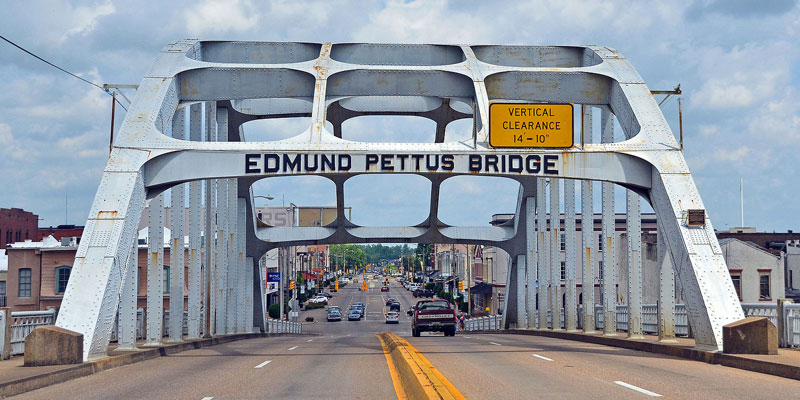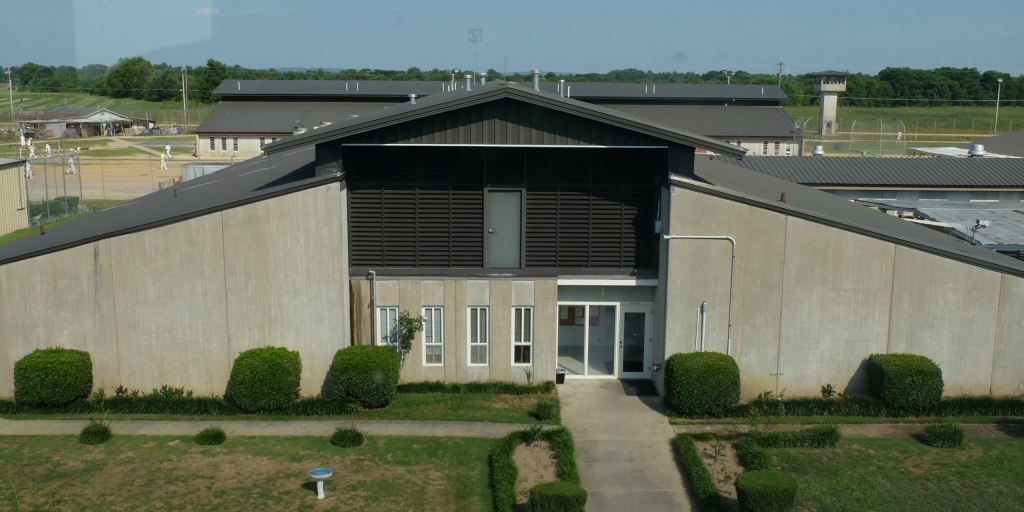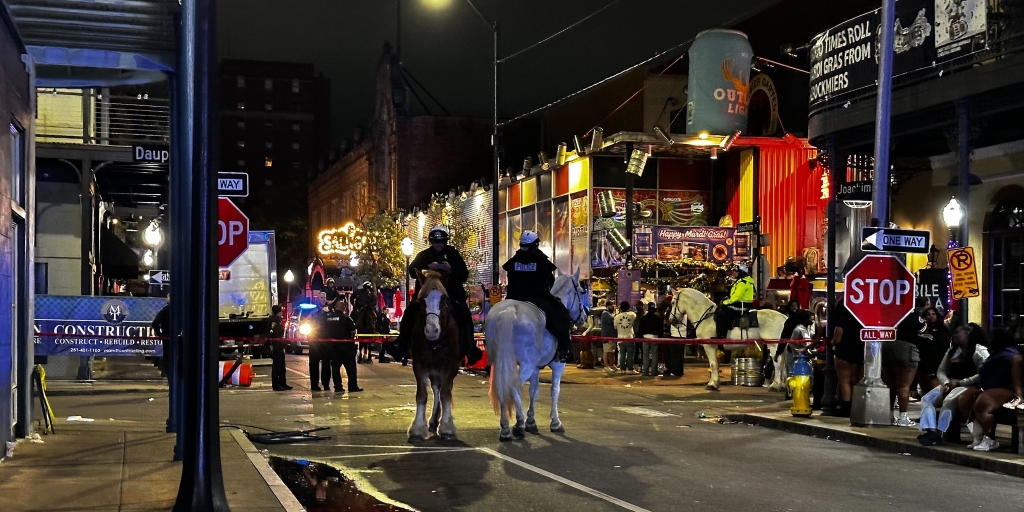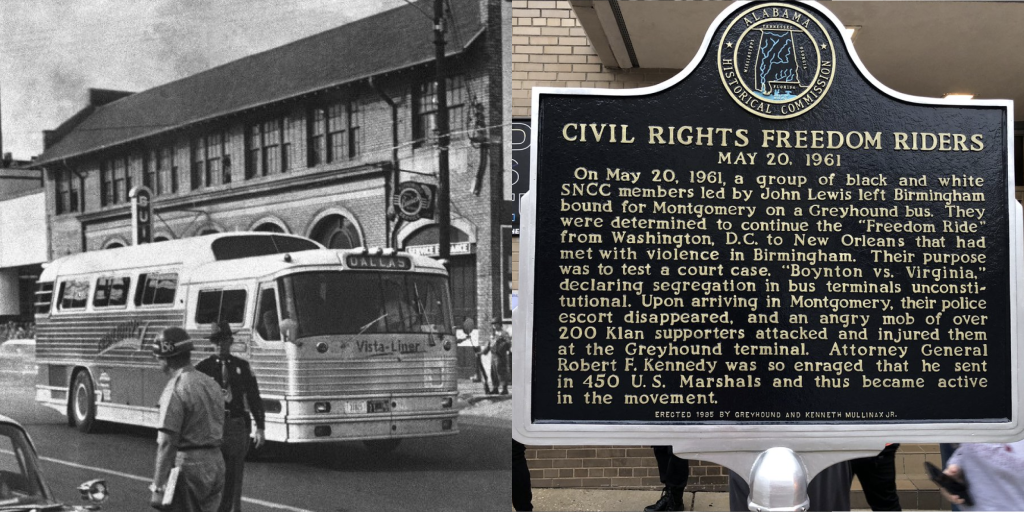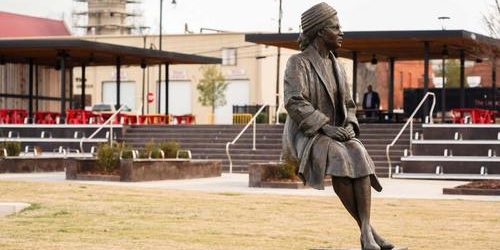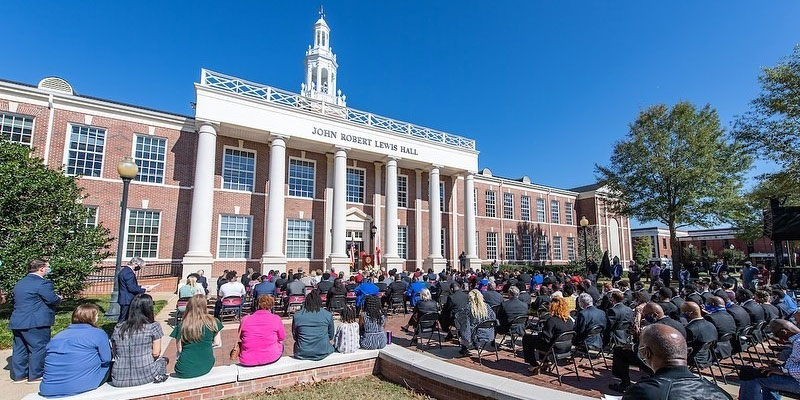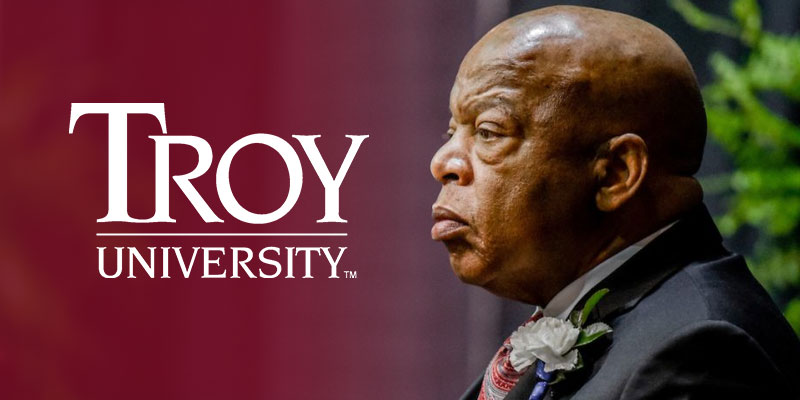The ongoing discussion over whether to rename the Edmund Pettus Bridge in Selma experienced a new development Monday.
State Senator Malika Sanders-Fortier (D-Selma) announced her intention to sponsor a bill that would give legislators from Dallas County the ability to rename the Edmund Pettus bridge — a decision Sanders-Fortier wants to then leave up to the people of Selma.
The bridge at the center of the discussion is where a group of peaceful demonstrators led by civil rights champion John Lewis was attacked and beaten by a group of white Alabama State Troopers in 1965, a key moment in the civil rights movement.
An initiative to rename the bridge after John Lewis gained steam after the civil rights legend’s death in 2020, though Lewis himself and other leaders connected to the bridge have in the past been ambivalent about the changing of the bridge’s name.
Edmund Pettus, for whom the bridge is currently named, was a brigadier general in the Confederate army during the civil war. While living in Selma and practicing law in the 1870s, Pettus became a Grand Dragon of the Ku Klux Klan, according to the Encyclopedia of Alabama. He served for 10 years as a U.S. Senator from Alabama late in his life.
A bill to rename the structure as the “Journey to Freedom Bridge” passed the Alabama Senate in 2015 but did not get out of committee in the House of Representatives.
In 2017, Alabama lawmakers passed the Memorial Preservation Act, which prevents localities from altering any historical item in public view that is over 40 years old. The Edmund Pettus Bridge was built in 1940, making it around 81 years old.
The new legislation announced Monday from Sanders-Fortier, made necessary by the 2017 law, would appear to create an exception to the law in the case of the Edmund Pettus Bridge. The text of the bill has not yet been made public.
“As Americans, we need to learn the unvarnished truth about what happened in Selma during the struggle for voting rights and put all the facts on the table,” John Lewis told the Montgomery Advertiser in 2015. “That is the top priority, whether the name is changed or not.”
U.S. Representative Terri Sewell (D-Birmingham), a native of Selma, opposed changing the name of the bridge in years past, but changed her stance on the issue in the wake of Lewis’ passing in 2020.
Sewell now supports the idea of naming the bridge after Lewis, but believes the decision should be made locally. Lewis, too, often voiced support for allowing local leaders in Selma to choose whether the bridge is renamed.
A number of remaining racial justice advocates in the Selma area, including some who marched in Bloody Sunday of 1965, oppose renaming the bridge, per a piece from the Advertiser published in the summer of 2020 after Lewis’ death.
Sanders-Fortier, in a statement on Monday, did not indicate whether she personally supports renaming the bridge, saying, “This proposed legislation on how to handle the name is a way to honor the local people of Selma who cross the bridge every day and it gives us time to seek the will of God, not just for the bridge, but for our collective healing.”
Henry Thornton is a staff writer for Yellowhammer News. You can contact him by email: [email protected] or on Twitter @HenryThornton95.




